Jim Bushnell Featured in The Mercury News on Assembly Bill 617 to Address Local Air Pollutants
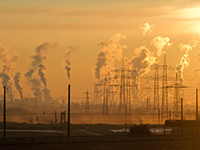
Professor Jim Bushnell was featured in a July 11th article in The Mercury News on assembly bill 617 to address local air pollutants. …To address local environmental concerns, especially in districts long burdened by dirty and toxic air, Brown and top leaders introduced a separate bill, Assembly Bill 617. It would require oil refineries and […]
UC Davis to Help Equip Africans to Meet Energy Challenges
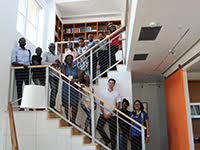
Considered the most sustainable university in the world, UC Davis is offering the only energy-themed institute of the Mandela Washington Fellowship, the flagship of the Young African Leaders Initiative, today through July 29. The campus, which piloted the energy institute last year, is one of 38 universities hosting a total of 1,000 fellows for summer programs in […]
Ben Finkelor featured on KCRA
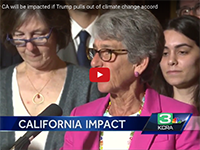
Watch Ben Finkelor, Executive Director of the UC Davis Energy Efficiency Center, in a segment on California’s role in advancing renewable energy and reducing greenhouse gas emissions. Click here for more.
Jim Bushnell featured on CBS Sacramento
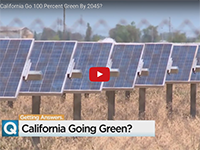
Watch Jim Bushnell, Professor of Economics, in a segment on California’s efforts to become 100 percent reliable on renewable energy by 2045. Click here to watch the segment.
New Working Paper Published
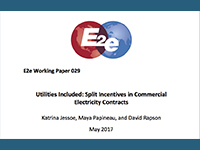
In a newly released working paper, Katrina Jessoe (UC Davis), Maya Papineau (Carleton University) and David Rapson (UC Davis) focus on the split incentive problems created when energy bills are bundled into the monthly rental commercial contract by comparing electricity usage across tenant-paid versus owner-paid contracts. The authors found that among the top ten percent […]
Apply for a 2017-2018 UC Davis Carbon Neutrality Initiative Student Engagement Fellowship (Deadline is May 17)
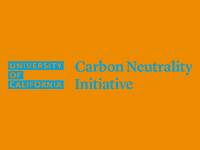
The University of California, a national leader in sustainability, launched the Carbon Neutrality Initiative (CNI) with an aim of emitting net zero greenhouse gases from its activities, buildings, and vehicle fleets by 2025. UC Davis is committed to teaching and research that explores climate change solutions, expanding its energy efficiency efforts, increasing its use of […]
The EEC is Attending the EE Global Forum 2017
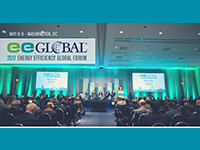
EE Global Forum 2017, being held May 8-9 at the Walter E. Washington Convention Center in Washington, D.C., is the leading international energy efficiency event, drawing hundreds of energy efficiency influencers for two-days of unparalleled discussion at its Plenary and Executive Dialogue sessions, and best-in-class networking aimed at driving actionable plans for the next generation […]
Thank You for Supporting us on UC Davis Give Day!
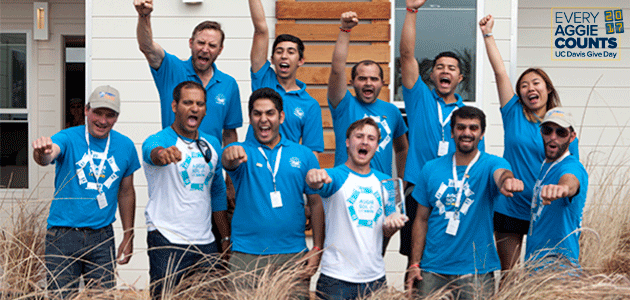
Thanks to 35 generous donors the Energy Efficiency Center raised $14,125 on UC Davis’ first Give Day. With these gifts we will continue to elevate the impact we are making on realizing our world’s clean energy future. Thank you for your support!
UC Davis Features CLTC’s Groundbreaking Work on Lighting Quality
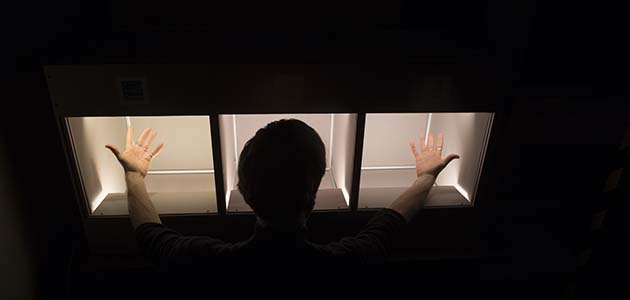
The California Lighting Technology Center (CLTC) is leading the way in a new era of lighting that merges color quality with energy efficiency. Michael Siminovitch, director of the CLTC and a professor in the UC Davis Department of Design, explains “In the past when we’ve moved to more efficient lighting, we’ve lost quality of visual […]
Live Sustainably this Fall: Apply to be the Next Occupant of the UC Davis Honda Smart Home
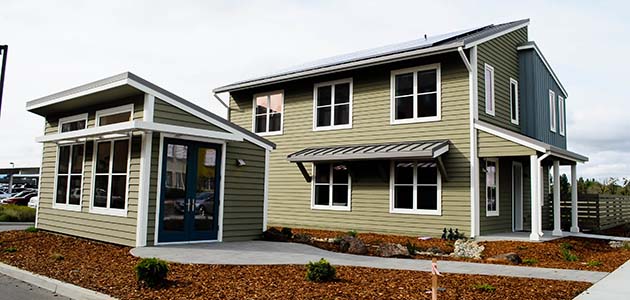
The Honda Smart Home—a unique home showcasing technologies that enable zero net energy living and transportation—is soliciting applications for new occupants. This rare opportunity is open to UC Davis faculty, staff or graduate students for 2017-2018. The home is located in UC Davis West Village and is capable of producing more energy on-site from renewable […]

